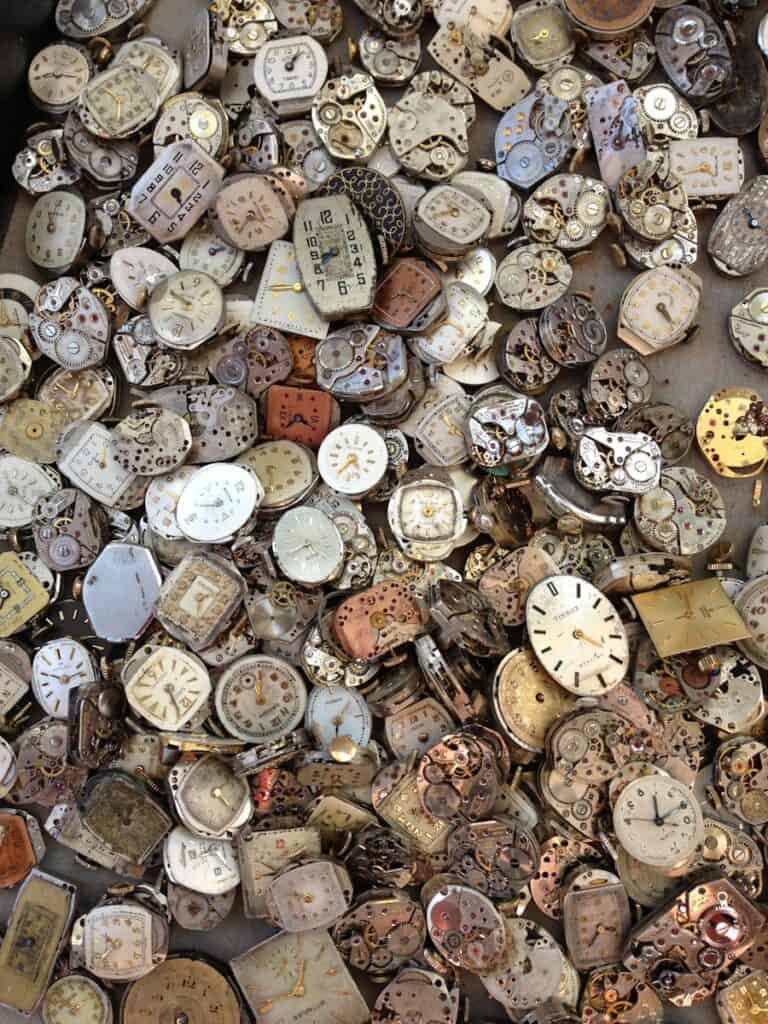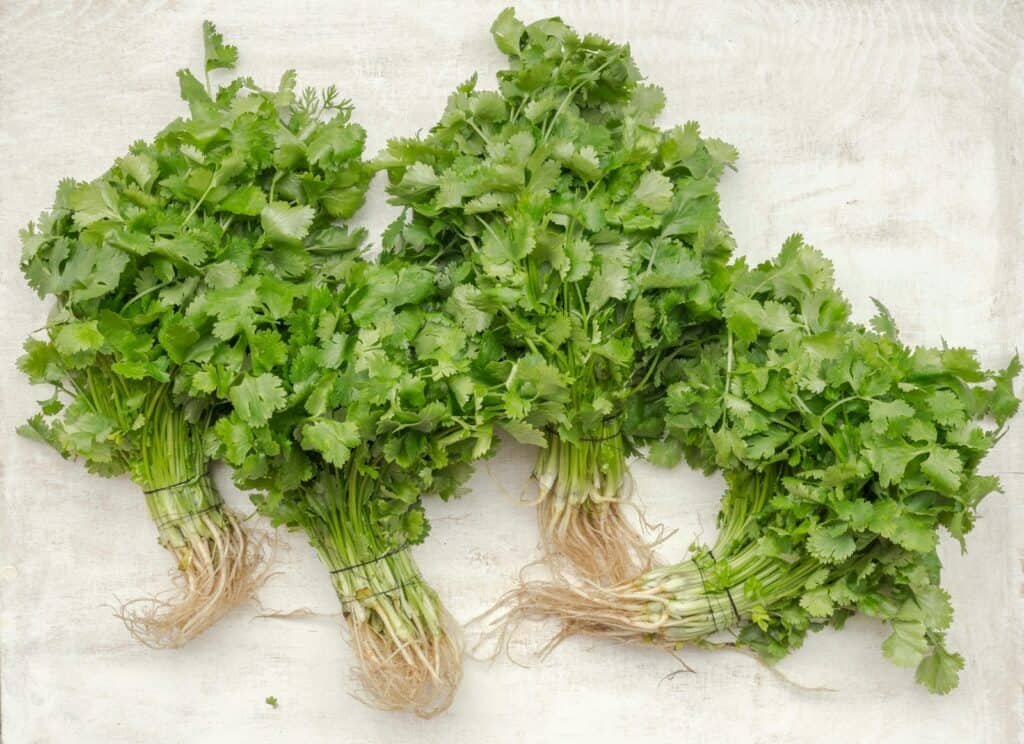Pineal Gland Detox Methods & Health Guide for Natural Cleanse

Wellness Fixation is reader supported, meaning I may earn a small commission if you purchase something through my links at no extra cost to you. Thanks for your support! Learn more
Key Highlights
- The pineal gland, located deep in the brain, regulates sleep and wake cycles by producing melatonin.
- Calcification of the pineal gland, often due to fluoride exposure, can disrupt its function.
- Detoxifying the pineal gland involves reducing fluoride intake and incorporating specific foods and practices.
- Turmeric, cilantro, and garlic are key foods that aid in detoxifying and supporting pineal gland health.
- Practices such as meditation, hydration, and sunlight exposure can enhance the detoxification process.
Fast Facts About the Pineal Gland
Hidden deep within our brains, the pineal gland is a small, pea-sized organ that plays a crucial role in regulating our sleep patterns and circadian rhythms. It produces melatonin, the hormone responsible for sleep regulation, and is sensitive to light, which influences its activity.
Introduction to the Pineal Gland
The pineal gland is often referred to as the “third eye” due to its central location in the brain and its significance in regulating sleep and wake cycles. Despite its small size, this gland holds a powerful role in maintaining the body’s internal clock, known as the circadian rhythm.

Most importantly, the pineal gland is sensitive to environmental factors, including light exposure and dietary intake. Therefore, maintaining its health is vital for overall well-being and optimal functioning of the body.
Importance in Daily Biological Functions
The pineal gland’s primary function is to produce melatonin, a hormone that signals the body when it’s time to sleep. This hormone’s production is influenced by light exposure, with higher levels produced in darkness to facilitate restful sleep.
Besides regulating sleep, melatonin also influences other biological functions, including mood regulation and immune system support. Therefore, a healthy pineal gland is essential for maintaining these critical bodily processes.
Potential for Calcification and Its Impact
Unfortunately, the pineal gland is susceptible to calcification, a process where calcium deposits build up and hinder its function. This calcification can be exacerbated by exposure to fluoride, commonly found in tap water and dental products.
Calcification can lead to a reduction in melatonin production, resulting in sleep disturbances and other health issues. Therefore, understanding how to detoxify and maintain the pineal gland is crucial for optimal health.
Foods That Support Pineal Gland Health
One of the most effective ways to support the pineal gland is through diet. Certain foods have properties that help detoxify and maintain the gland’s health, reducing calcification and promoting overall well-being.
Turmeric and Antioxidant Properties
Turmeric is a powerful spice known for its antioxidant and anti-inflammatory properties. The active compound in turmeric, curcumin, has been shown to protect against fluoride-induced damage, making it a valuable ally in pineal gland detoxification.
Including turmeric in your diet can help reduce inflammation and oxidative stress, both of which contribute to calcification. Consider adding turmeric to your meals or consuming it as a supplement to support your pineal gland health.
Cilantro for Metal Detoxification
Cilantro, a common herb, is known for its ability to chelate, or bind to, heavy metals and facilitate their removal from the body. This property makes cilantro an excellent choice for detoxifying the pineal gland.
Incorporating cilantro into your diet can help reduce the burden of heavy metals, such as mercury and lead, that may contribute to calcification. You can add cilantro to salads, smoothies, or use it as a garnish in various dishes.

Garlic to Support the Immune System
Garlic is another potent food that supports pineal gland health. Its sulfur compounds, particularly allicin, have detoxifying properties that help dissolve calcium deposits and support immune function.
Regular consumption of garlic can aid in reducing calcification and promoting overall health. You can incorporate garlic into your meals or consume it raw for maximum benefits.
Lemon Juice for Cleansing Properties
Lemon juice is renowned for its cleansing and detoxifying abilities. Rich in vitamin C and antioxidants, lemon juice helps alkalize the body and support the detoxification process.
Drinking lemon water daily can aid in flushing out toxins and reducing calcification in the pineal gland. Simply squeeze fresh lemon juice into a glass of water and enjoy its refreshing and health-boosting properties.
Coconut Oil as a Nutrient Source
Coconut oil is a versatile and nutrient-rich food that supports pineal gland health. Its medium-chain triglycerides (MCTs) provide energy and support brain function, making it an excellent addition to your diet.
Besides that, coconut oil has anti-inflammatory properties that can help reduce calcification. Use coconut oil for cooking or add it to smoothies for a healthy boost.
Effective Practices for Detoxifying the Pineal Gland
Detoxifying the pineal gland involves a combination of dietary changes and lifestyle adjustments. By adopting these practices, you can help reduce calcification and promote the gland’s optimal function.
Reducing Fluoride Exposure
Fluoride is commonly found in tap water, toothpaste, and certain foods. It is known to contribute to the calcification of the pineal gland. Therefore, reducing your exposure to fluoride is a crucial step in detoxifying the gland.
Consider using a water filtration system that removes fluoride from your drinking water. Additionally, opt for fluoride-free toothpaste and be mindful of processed foods that may contain added fluoride. For more information on how to detox the gland in our brain that controls sleep, aging, and our state of mind, check out this article on detoxification methods.
Adopting a Whole Foods Diet
A diet rich in whole, unprocessed foods provides the nutrients necessary for maintaining pineal gland health. Whole foods are free from additives and preservatives that can contribute to toxicity and calcification.
Focus on incorporating a variety of fruits, vegetables, nuts, seeds, and lean proteins into your meals. These foods provide essential vitamins, minerals, and antioxidants that support detoxification and overall health.
Incorporating Herbal Supplements
Certain herbal supplements can aid in detoxifying the pineal gland and supporting its function. For example, herbs like ginkgo biloba and gotu kola are known for their ability to improve blood circulation and support brain health.
Consult with a healthcare professional before adding any supplements to your routine, especially if you have existing health conditions or are taking medications.
Staying Hydrated with Pure Water
Hydration is key to detoxification. Drinking pure, filtered water helps flush out toxins and supports the body’s natural cleansing processes. Aim to drink at least eight glasses of water a day to maintain adequate hydration.
Besides helping detoxify the pineal gland, staying hydrated supports overall bodily functions and can improve energy levels and mental clarity.
Lifestyle Adjustments to Enhance Pineal Gland Health
Beyond dietary changes, certain lifestyle adjustments can further enhance the health of your pineal gland. These practices promote overall well-being and support the detoxification process.
By integrating these changes into your daily routine, you can create a supportive environment for your pineal gland to function optimally.
Let’s explore some of these adjustments in detail.
Limiting Harmful Substances: Sugar, Caffeine, Tobacco, Alcohol
Excessive consumption of sugar, caffeine, tobacco, and alcohol can negatively impact the pineal gland and overall health. These substances can contribute to inflammation and oxidative stress, hindering the gland’s function.
Reducing or eliminating these substances from your diet can help support detoxification and promote a healthy pineal gland. Consider replacing sugary drinks with herbal teas and choosing natural sweeteners like honey or maple syrup.
Embracing Nature and Sunlight Exposure
Exposure to natural sunlight is essential for regulating the pineal gland’s production of melatonin. Sunlight exposure during the day helps maintain the body’s circadian rhythm and improves sleep quality.
Spend time outdoors daily, allowing your skin to absorb sunlight. Even a short walk in the sun can have significant benefits for your pineal gland and overall health.
- Take a morning walk to soak in the early sun.
- Engage in outdoor activities like gardening or hiking.
- Ensure your living space has ample natural light.
Practicing Regular Meditation and Relaxation Techniques
Meditation and relaxation techniques, such as deep breathing and yoga, can support the health of the pineal gland by reducing stress and promoting relaxation. Stress can contribute to calcification, so managing it is essential.

Incorporate meditation into your daily routine, even if it’s just for a few minutes. This practice can help clear your mind, reduce stress, and enhance your overall sense of well-being.
Potential Benefits of a Healthy Pineal Gland
Maintaining a healthy pineal gland offers numerous benefits for both physical and mental health. By supporting its function, you can experience improvements in various aspects of your life.
Improved Sleep Patterns and Circadian Rhythm
A healthy pineal gland ensures the production of adequate melatonin, leading to better sleep patterns and a well-regulated circadian rhythm. This results in improved sleep quality, making you feel more rested and alert during the day.
Proper sleep is crucial for cognitive function, mood regulation, and overall health. Therefore, supporting your pineal gland can have a positive impact on your daily life.
Enhanced Mood and Cognitive Function
A healthy pineal gland doesn’t just contribute to better sleep; it also plays a role in mood regulation and cognitive function. When melatonin levels are balanced, you may experience improved mood stability and enhanced mental clarity. For more information on maintaining a healthy pineal gland, explore pineal gland detox methods.
This can lead to increased productivity and a more positive outlook on life. Therefore, maintaining the health of your pineal gland is crucial for mental well-being.
Spiritual Awareness and Mindfulness
The pineal gland is often associated with spiritual awareness and higher consciousness, sometimes referred to as the “third eye.” When functioning optimally, it may facilitate deeper meditation and a heightened sense of mindfulness.
Practices that support the pineal gland, such as meditation and yoga, can enhance your spiritual journey, helping you connect more deeply with your inner self and the world around you.
- Practice daily meditation to enhance spiritual awareness.
- Engage in mindfulness activities to support mental clarity.
- Explore yoga or tai chi to promote relaxation and balance.
Conclusion: Achieving Long-Term Pineal Gland Health
In conclusion, detoxifying and maintaining the health of your pineal gland is a multi-faceted approach that involves dietary choices, lifestyle changes, and mindfulness practices. By reducing fluoride exposure, incorporating detoxifying foods, and adopting healthy habits, you can support the optimal function of this vital gland.
Remember, the journey to a healthier pineal gland is a continuous process. Consistency and dedication to these practices will yield the best results, enhancing your overall well-being and quality of life.
Frequently Asked Questions
Many people have questions about the pineal gland and how to maintain its health. Here are some common inquiries and their answers to help guide you on your detoxification journey.
What is the primary function of the pineal gland?
The primary function of the pineal gland is to produce melatonin, a hormone that regulates sleep and wake cycles. It helps maintain the body’s circadian rhythm, influencing sleep quality and overall health.
Besides regulating sleep, melatonin also plays a role in mood regulation and immune system support, making the pineal gland essential for various bodily functions.
How can I tell if my pineal gland is calcified?
Calcification of the pineal gland can lead to symptoms such as sleep disturbances, fatigue, and mood changes. However, these symptoms can also be attributed to other health issues, so it’s important to consult a healthcare professional for an accurate diagnosis.
Medical imaging tests, such as an MRI, can detect calcification, but these are typically not performed unless there are significant health concerns. For more information on detoxifying the gland in our brain that controls sleep and aging, you can visit Anima Mundi Herbals.
Is there scientific evidence supporting pineal gland detox methods?
While there is some anecdotal evidence and preliminary research supporting certain detox methods, more scientific studies are needed to fully understand their effectiveness. Many detox practices are based on traditional and holistic approaches that have been used for centuries, such as the use of foods to detox your pineal gland.
It’s important to approach detoxification with an open mind and consult with healthcare professionals before making significant changes to your diet or lifestyle.
Which foods are best avoided for pineal gland health?
To support pineal gland health, it’s best to avoid foods high in fluoride, such as processed foods and certain teas. Additionally, reducing sugar, caffeine, and alcohol intake can help minimize inflammation and oxidative stress. For more information on how to detox the pineal gland, consider exploring various natural methods.
Focusing on a diet rich in whole, unprocessed foods will provide the nutrients necessary for maintaining the health of your pineal gland.
How does fluoride affect the pineal gland?
Fluoride can accumulate in the pineal gland, leading to calcification and reduced melatonin production. This can disrupt sleep patterns and negatively impact overall health.
Reducing fluoride exposure by using filtered water and fluoride-free dental products can help protect the pineal gland from calcification.
Can lifestyle changes alone improve pineal gland function?
Lifestyle changes, such as reducing fluoride exposure, eating a healthy diet, and practicing mindfulness, can significantly improve pineal gland function. However, it’s important to remember that these changes should be part of a holistic approach to health.
Combining lifestyle changes with regular medical check-ups and consultations with healthcare professionals will ensure a comprehensive strategy for maintaining pineal gland health.






